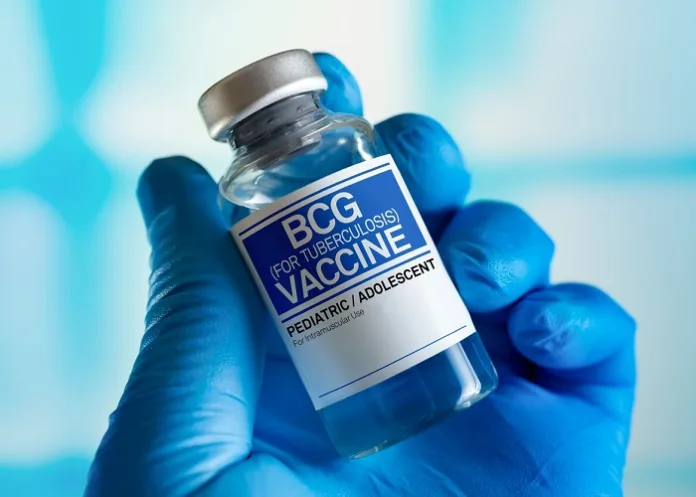Although the BCG vaccine for TB has been used for 100 years and is largely effective for children under five, it is less so in older people, nor can it be used on patients with certain medical conditions.
Now, writes Charles Shey Wiysonge, in The Conversation, scientists are the closest they've ever been to discovering a vaccine that might replace or complement it.
Discussing the latest developments in the fight against one of the world’s deadliest diseases, he writes:
We do not yet have a new vaccine for TB, but, for the first time, there are several candidates at advanced stages of clinical development.
Usually, vaccine development takes decades and unfolds step by step. Experimental candidates are created in the laboratory and tested in animals before moving into progressively larger human clinical trials.
Clinical trials are research studies that test an intervention – like a vaccine – in human beings and occur in phases, from phase 1 to phase 3. The shots are in clinical development when they reach the clinical trial stage.
• A phase 1 trial is a first-in-human study that recruits a small number of healthy people (usually fewer than 100), to assess whether a candidate vaccine is safe.
• Phase 2 trials are typically conducted among several hundred participants, to assess whether the candidate vaccine produces an immune response.
• For phase 3 trials, thousands of people are enrolled to assess whether the vaccine is efficacious and safe. Phase 3 TB vaccine trials are currently ongoing in Gabon, Kenya, Russia, South Africa, Tanzania and Uganda.
Even though we are still, at best, three years away from broad regulatory approval of a new TB vaccine, the scientific community can do a lot now to prepare for its use, and to inform the public so that the vaccine may be accepted when it becomes available.
TB vaccines are very challenging to develop. The bacterium that causes the disease is complex, and is proficient at evading the human immune system. We don’t yet have a full understanding of how to appropriately target the bacterium or what kind of immune responses are needed to induce immunity.
But there are some interesting approaches in the pipeline and there have been some encouraging data from clinical trials that are providing clues.
Why do we need a new TB vaccine?
TB is a global health emergency. About 2bn people are currently infected with Mycobacterium tuberculosis, and of those, 5% to 10% may become ill with TB and will potentially transmit the bacterium.
In 2021, nearly 10.6m people developed TB, and 1.6m died. We urgently need new tools to fight the disease, including new and improved vaccines.
The Bacille Calmette-Guérin (BCG) vaccine has saved tens of millions of lives and is effective in children under the age of five in preventing TB deaths and severe forms of the disease.
However, it has variable efficacy for protection against pulmonary TB in adolescents and adults – and it is pulmonary TB that’s responsible for the majority of TB transmission.
So new and improved vaccines that are effective in preventing pulmonary TB in adolescents and adults are essential to control TB, and to reduce transmission to all, including newborn babies.
TB is the leading cause of death among people with HIV, who have up to 20 times more risk of developing the disease than those without HIV infection. The current BCG vaccine is not recommended for use in people with HIV, for safety reasons.
Although BCG is a safe vaccine in immunocompetent infants (those whose immune systems are working properly), severe adverse events can occur in HIV-infected infants after vaccination with BCG.
These include a rare but life threatening condition – disseminated BCG disease. However, new TB vaccine candidates are being developed and evaluated to offer clinical benefit in people with HIV.
How effective has the BCG vaccine been?
BCG vaccines are given to more than 100m children every year worldwide, at birth or soon after. Its effectiveness can vary depending on several factors, including the prevalence of TB in a given area, the strain of the BCG vaccine used, and the age at which it was administered.
Several studies have shown that the effect of the BCG wanes as children approach adolescence. People may become infected with TB but not be aware of it.
What will happen to the BCG vaccine?
The BCG vaccine will not be replaced by another TB vaccine until and unless there is compelling data on the safety and efficacy of an alternative. Most of the current vaccines in advanced stages of clinical trials are tested in adolescents and adults.
Their safety and efficacy would need to be proven in newborn infants to be able to replace BCG.
In addition, BCG vaccination has non-specific beneficial effects on overall mortality and leads to more reductions in child mortality than would be expected by just protecting against TB. There is thus a great possibility that BCG would remain in use.
What will a new vaccine mean for the TB fight? This depends on what the clinical trial data will show. Most importantly, any new vaccine needs to be safe, and offer clear clinical benefit to populations at risk.
Charles Shey Wiysonge – Regional Adviser: Immunisation, WHO Regional Office for Africa, Stellenbosch University
See more from MedicalBrief archives:
Century-old BCG vaccine prevents TB in children, not adults – Boston meta-analysis
SA in multi-million dollar trial for new TB vaccine
From Cameroon to cutting-edge TB research at UCT

